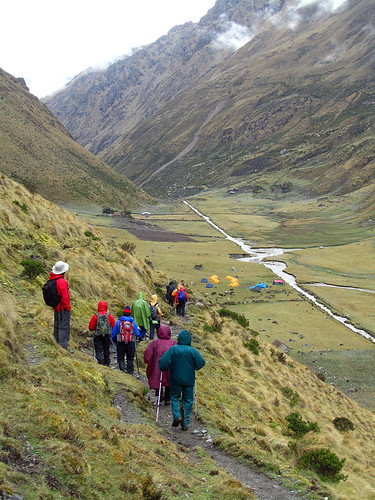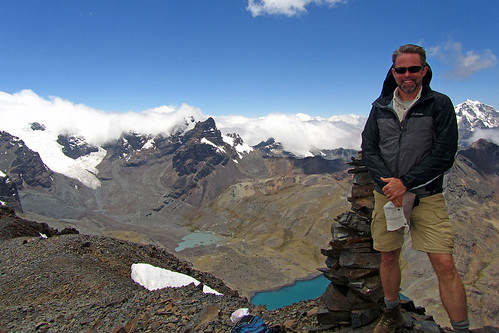I found “flow” in the Peruvian Andes. I also tend to experience it while writing. I’ve achieved it while making boxes in a factory, while preparing a speech, and while mowing the lawn. (For real!) Though each of these activities was very different, they shared some commonalities that helped me get “in the zone”. This leads me to wonder: Can happiness be somehow be cultivated? Turns out, it can.
Through Mihály Csíkszentmihályi‘s research into flow (or optimal experience), he found that it’s possible for a person to gain control over the quality of their daily experience, to build enjoyment into even routine and mundane activities. His studies of diverse populations around the world have shown that our best moments contain at least one — and often all — of the following characteristics (some of which overlap):
- A challenging activity that requires skill. Flow occurs at “the boundary between boredom and anxiety, when the challenge is just balanced with the person’s capacity to act.” To experience flow, you have to be doing something difficult — but not too difficult.
- The merging of action and awareness. Because challenging tasks require full attention, “people become so involved in what they are doing that the activity becomes spontaneous, almost automatic.”
- Clear goals and feedback. The vast majority of peak experiences occur during goal-directed actions bounded by rules, such as playing chess, programming a computer, or climbing a mountain. (Or, in my case, mowing the lawn.)
- Concentration on the task at hand. To achieve optimal experience, you can’t be distracted. You have to be absorbed in what you’re doing. As you focus, order comes to your consciousness, which leads to contentment and joy. Fear and worry fader away. You are fully present in the “now”.
- A sense of control. During the flow experience, you feel in control — or that you could be in control. More precisely, you aren’t worried that you might lose control, a state so typical of much of modern life. To achieve flow, you must believe that you’re able to influence the outcome of the activity.
- The loss of consciousness. During a peak experience, you lose sense of who you are. You become one with your environment, a part of a greater whole. You’re no longer aware of yourself as an individual.
- The transformation of time. When you’re in the zone, the passage of time is altered. In some ways, it slows — minutes seem like hours. In other ways, it quickens — hours seem like minutes. You lose track of the clock. This “freedom from the tyranny of time [adds] to the exhilaration we feel during a state of complete involvement.”
That first point merits a closer look. To achieve flow, you have to find a balance between your abilities and the challenge of the task at hand. If what you’re doing is too difficult for your current skill level, you’ll become anxious. If the task is easy and you’re good at it, it’ll be a relaxing pastime. Here’s a graphical representation of the flow model:
According to Csíkszentmihályi, “The key element of an optimal experience is that it is an end in itself.” You might need to complete the task you’re working on for other reasons, but you’d do it even if it weren’t required. You’re doing it not for some future benefit, but because the task itself is so rewarding.
When do you encounter flow? Do yo have these peak experiences often? For me, writing is the activity most likely to induce the flow state. Just last week, as I was racing to complete the “Get Rich Slowly” course, I experienced this sort of peak experience. I was working at the limit of my capabilities, and I loved it. What about you?






